Banner Cross Garden Sightings 14-17 July 2023
Despite the weather on Friday morning I managed to photograph a 14-spot Ladybird. This is a yellow and black ladybird with angular spots rather than the more usual round spots.
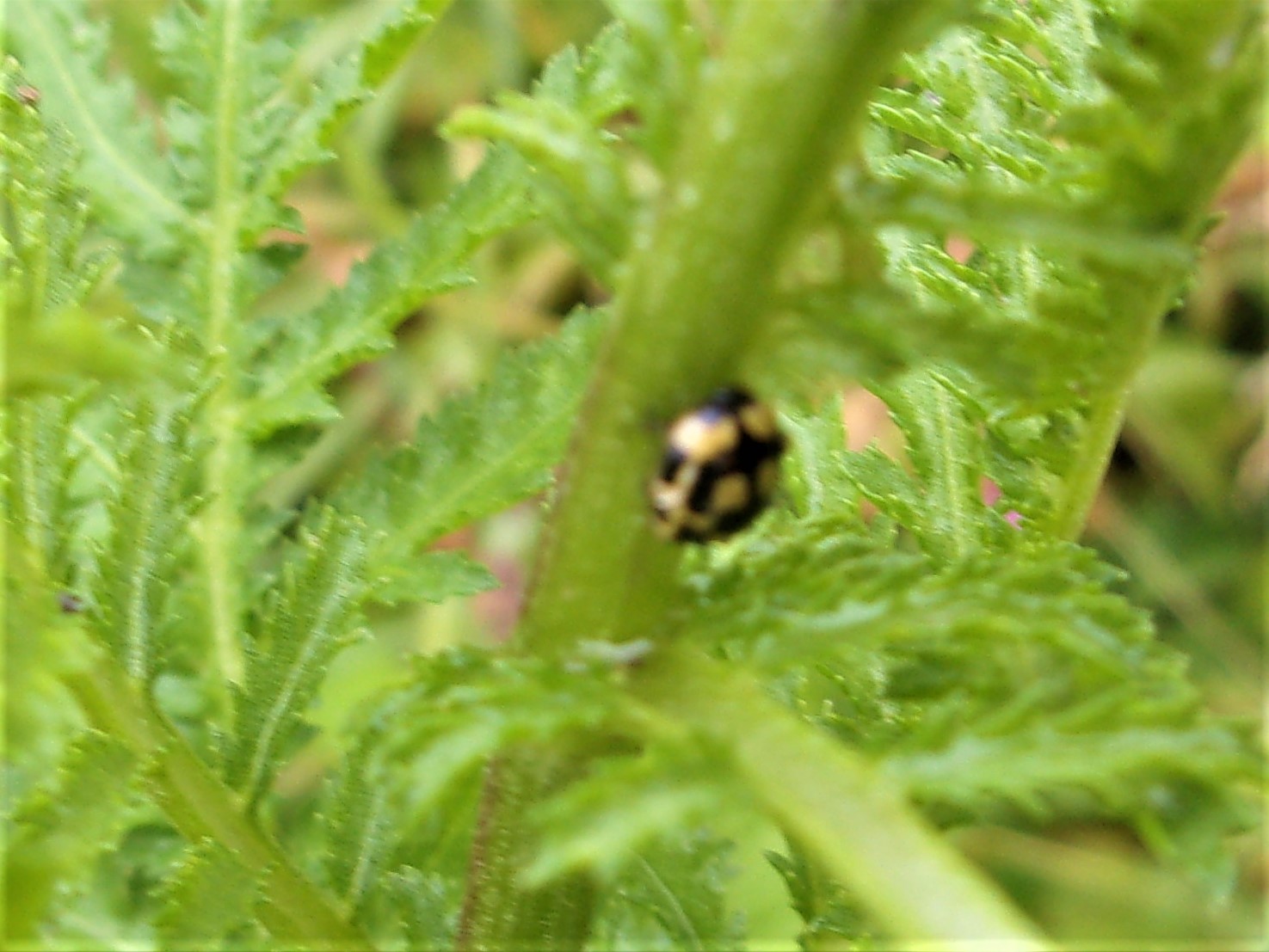
On Saturday morning I spotted a Gatekeeper butterfly in the wildflower meadow. The Gatekeeper has orange patches on both fore and rear wings. It also has the double white pupils in the eye spot. This species can be found wherever shrubs grow close to rough grassland. I also spotted a Ringlet butterfly. The upper sides of the wings are a uniform chocolate brown. This butterfly can be found in damp sheltered places, such as woodland clearings, woodland edges and hedgerows.
Whilst removing grass from the new hedge on Monday I disturbed a 7-spot Ladybird and some harvestmen (closely related to spiders). I also looked for the Parsnip Moth larva I saw last week. I could not find them but they had decimated the tops of the Hogweed.
Andrew Watchorn
Banner Cross Garden Sightings 7-10 July 2023
A Jay was spotted in the church gardens by a member of church on Saturday morning. If you wish to share your sightings with other members of church, please send me details including date and species.
Having returned from holiday I spent Monday morning, 10 July, in the garden. My first sighting was a Vapourer moth larva 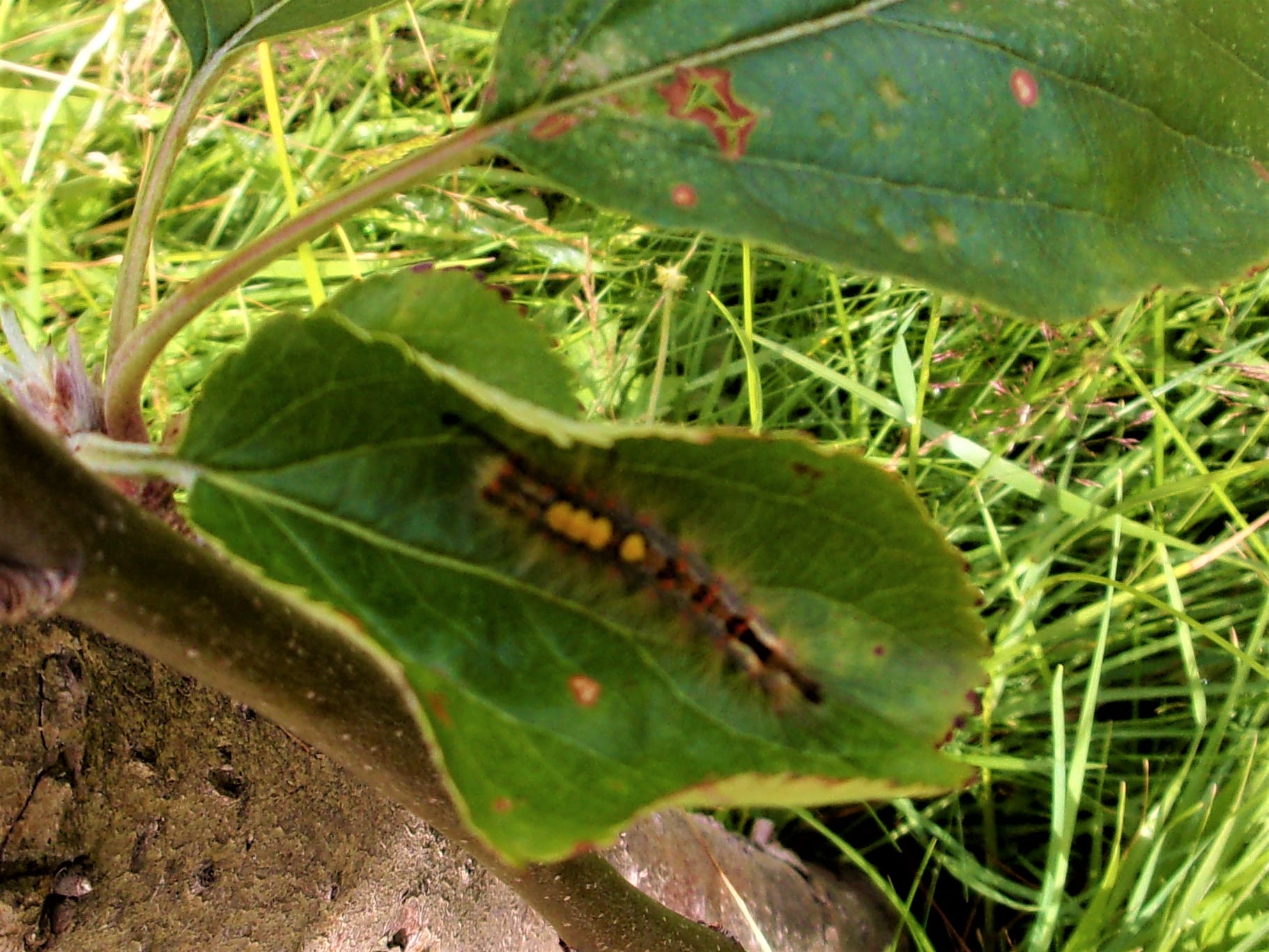
on the Apple tree and showed it to some interested members of church. The larvae feed on the leaves of a variety of deciduous trees.
When I looked at the Wild Garden I spotted some Parsnip Moth larva
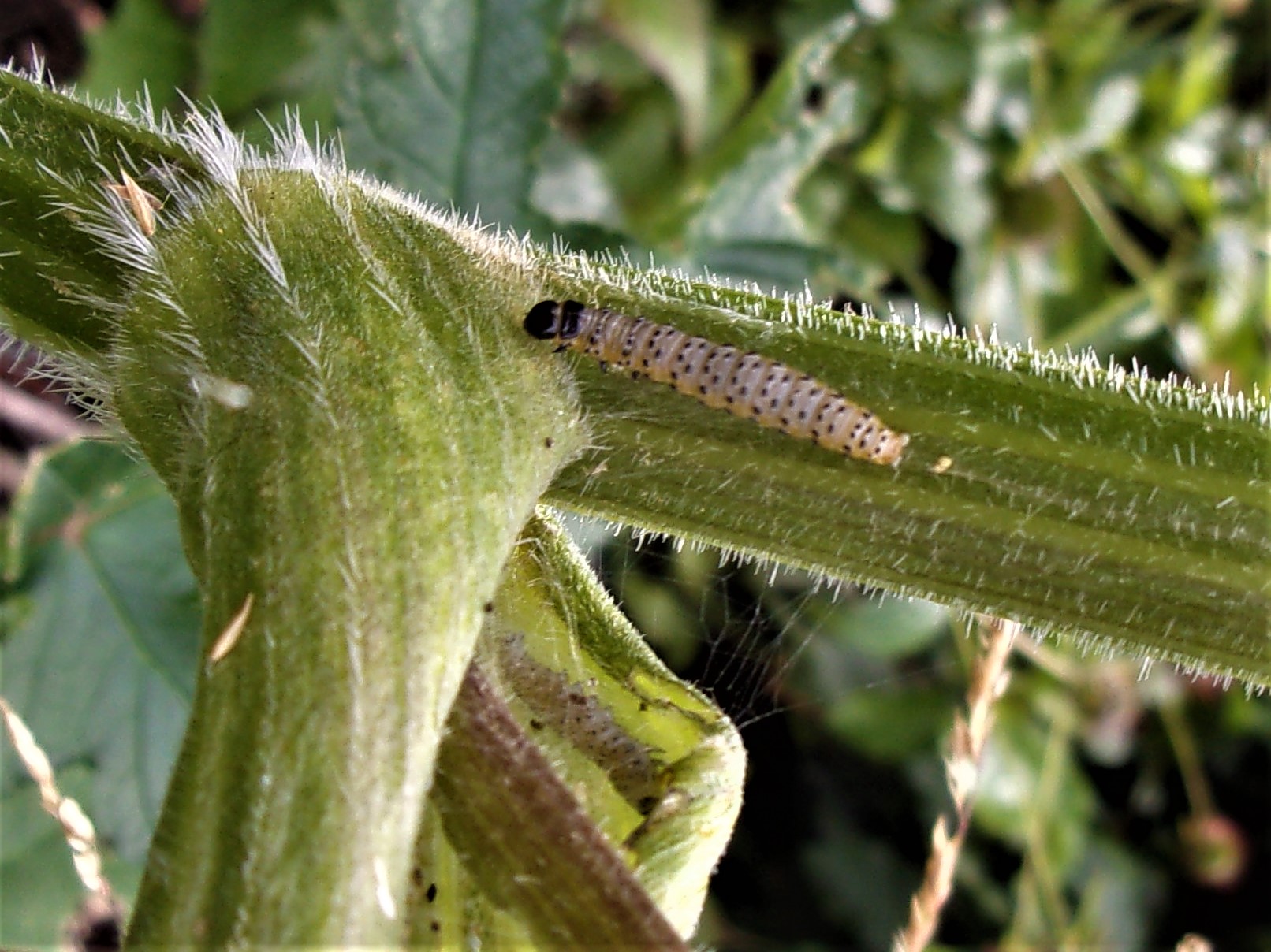
The food plants of the Parsnip Moth larva are Parsnips and Hogweed. I had planted some Hogweed at the begining of Covid and now the "pests" have arrived. Some of these will provide food for the birds.
Later on in the morning I was walking around the uncut grass circle in the lawn and spotted a female Small Skipper. 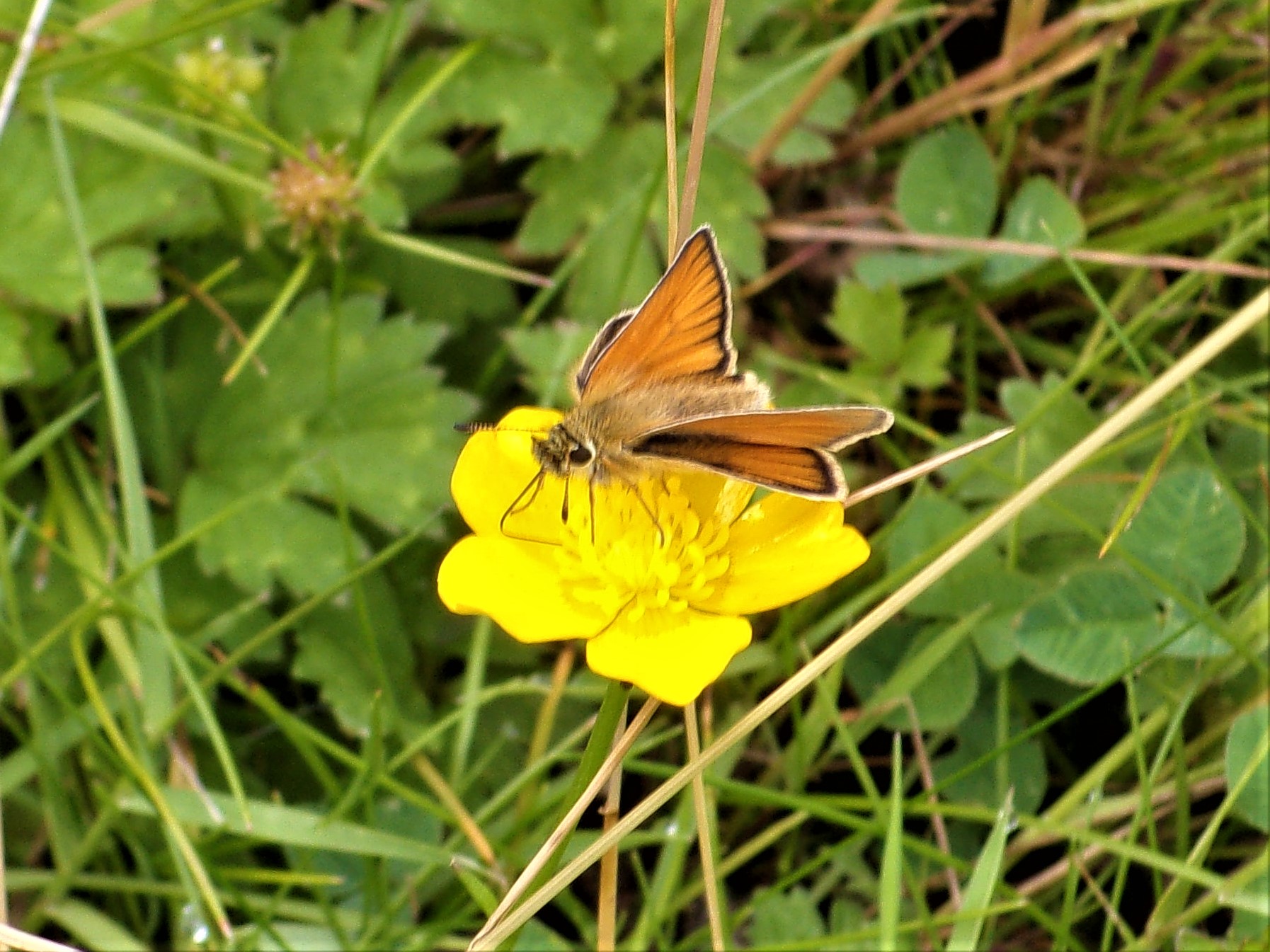
The Small Skipper prefers open places with long grass, such as unimproved rough grassland, field edges and woodland glades. The food plant of theSmall Skipper is almost exclusively Yorkshire-fog which has started to appear in the uncut lawn area.
A mother was showing her two children the larva on the Ragwort outside the railings. She asked me to confirm that they were Cinnabar moth larva, which I did.
This year the wilding of the church garden has introduced a number of new insects to the garden.
Banner Cross Garden Sightings June / July 2023
The Cinnabar moths have returned & we now have a substantial number of caterpillars feeding on the plentiful supply of ragwort. They ingest the toxins from the ragwort which makes them unattractive to birds & other predators
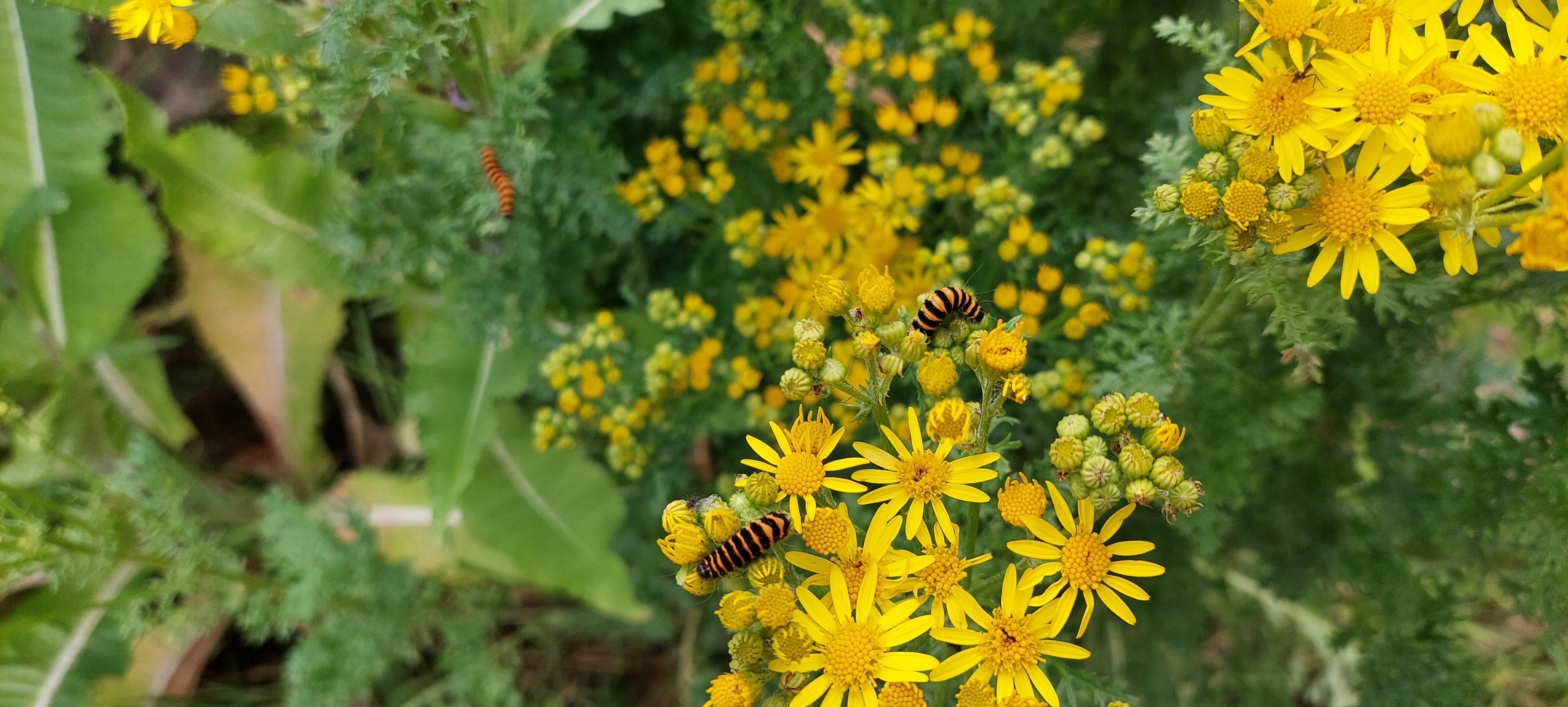
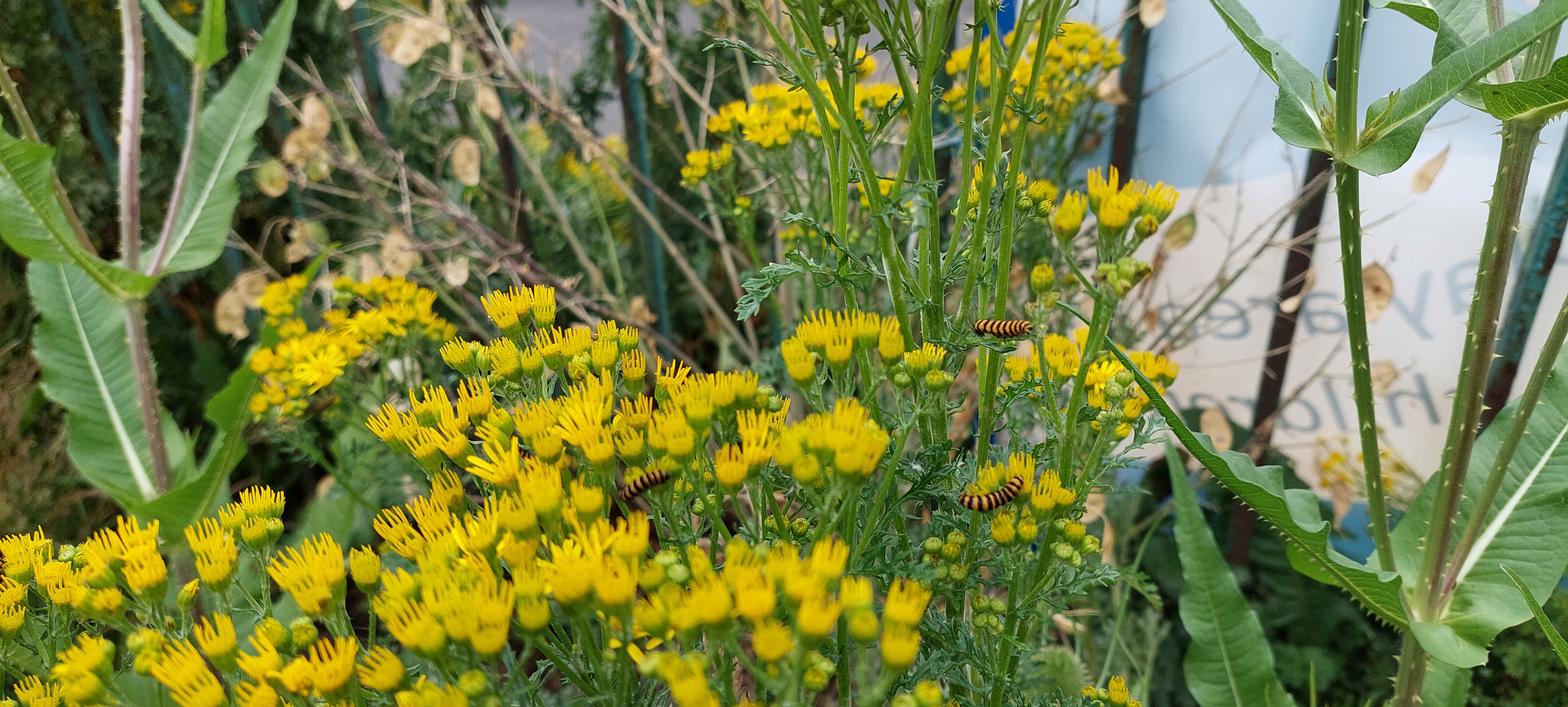
The recent heatwave has brought a lot of the Summer flowers into flower. We have gained some Large-flowered Evening-primroses.
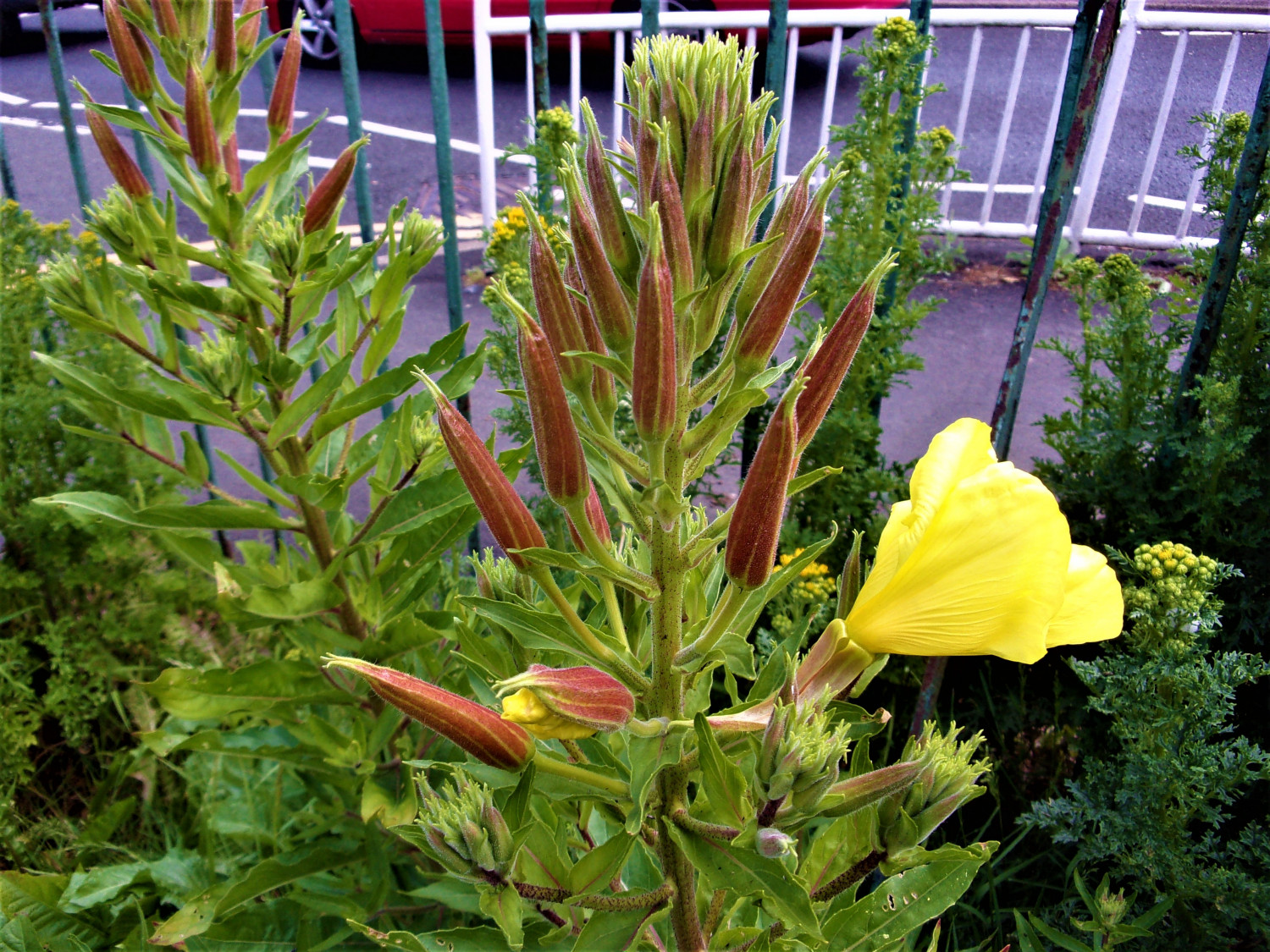
These open late in the day and attract moths. Cinnabar moths have been spotted and these lay their eggs on the plentiful Common Ragwort. Keep an eye open in the next few weeks for their black and yellow larva. The Teasels are coming into flower. Have you ever noticed that water collects where the leaves meet the stems. Does anyone know why this is? Common Figwort, Hedge Woundwort, Foxes-and-Cubs and White Deadnettle can be found in the flower bed next to the railings. Whilst looking around I saw a Silver Y moth fly ino the dead hedge and photographed it. I tried to point it out to Lorna but it was so well camoflaged that she could not see it until it moved. The hedge provides a safe haven for many insects and invertebrates.
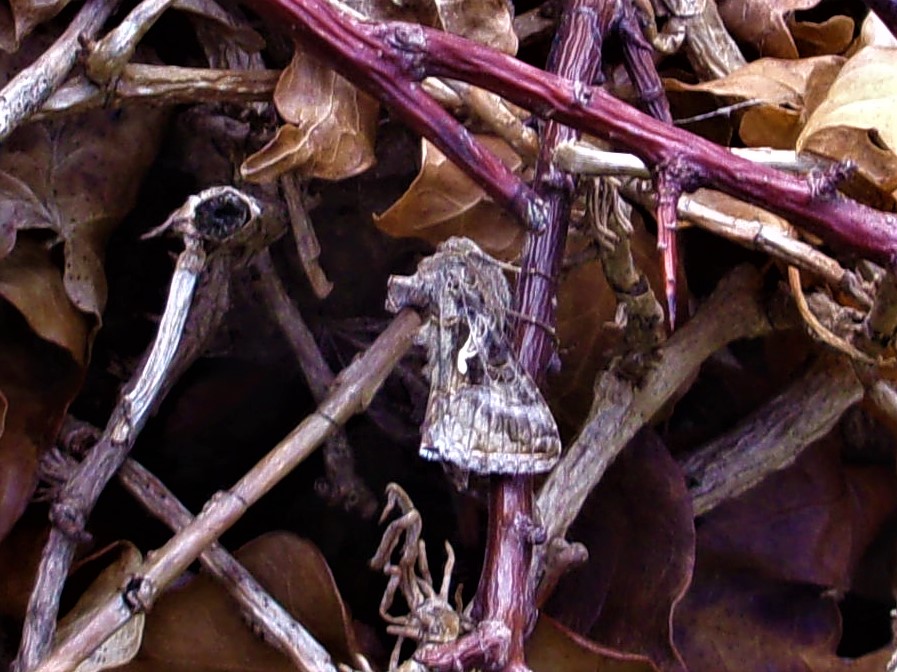
Yarrow, Ox-eye Daisy, and Ribwort Plantain can be found in the wildflower meadow. I spotted several Thick-legged Flower Beetles for the first time at Banner Cross. The male has bulging thighs but the females thighs are straight.
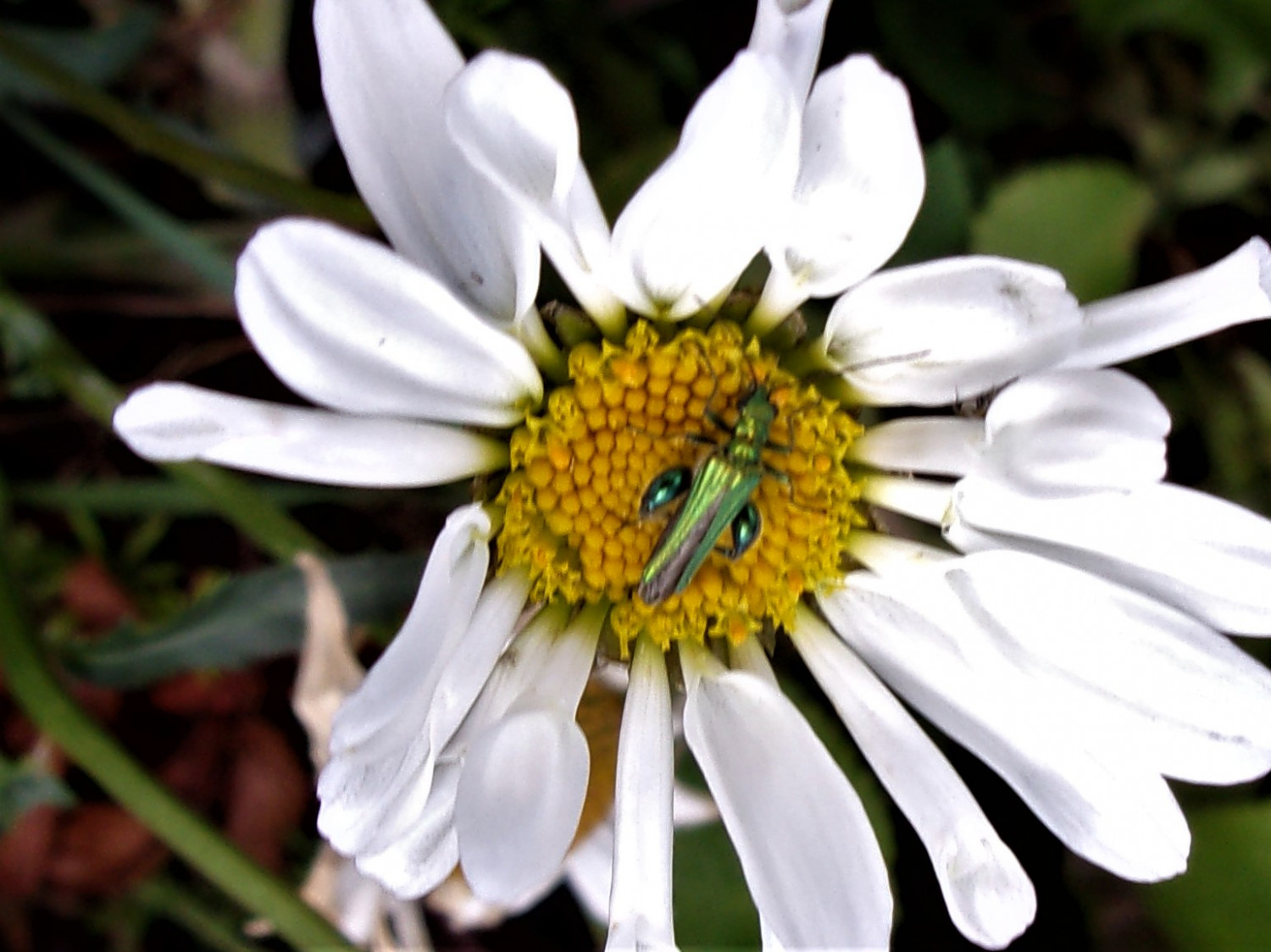
There were also some hoverflies and bees.
The poppies are putting on a good show all over the gardens.
Enchanter's Nightshade is now flowering in the flowerbed next to the iron gate.
Whilst cutting up th trimmings from the Sage bush in the vegetable garden, I noticed some eggs on the underside of the leaves. I took a photo of them before I put the leaves in the compost bins. When I got home and downloaded the photos I found that they were Green Shieldbug eggs and first instars. The different stages of the immature are called instars and vary between the different bugs. The Green Shieldbug has four before it becomes an adult. I was annoyed with my self for pruning the sage and will have to prune later in the year in future.